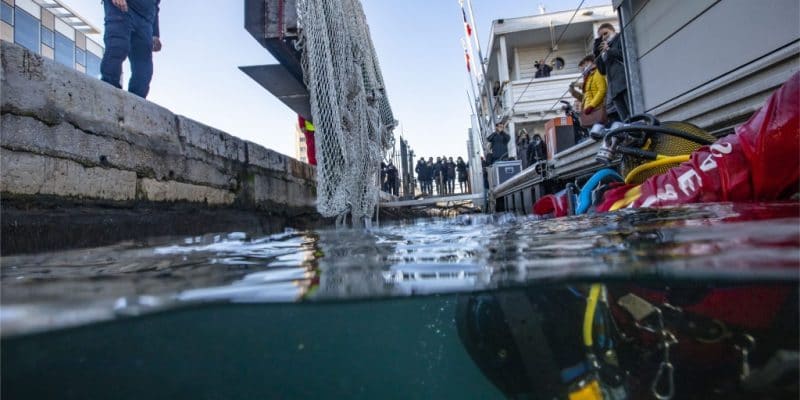In response to the plastic pollution that is causing the degradation of marine ecosystems in Morocco, Surfrider Foundation, a global coastal protection association, and the French start-up Green City will deploy a smart marine waste collection technology called "D-Rain" in this North African kingdom.
In Morocco, rainwater drains large quantities of waste onto beaches, causing marine pollution. To reduce this phenomenon, Green City Organisation, an environmental start-up based in Marseille, France, has joined forces with the Surfrider Foundation, a global association committed to protecting the coastline, to set up “D-Rain” in the city of Agadir. This is an intelligent system for collecting marine waste.
“The technique aims to recover plastic waste where it is concentrated at the outlet of rainwater networks or wadis (North African rivers, editor’s note), as well as port facilities, before it is scattered at sea. In this sense, the D-Rain system provides a solution to the problem of macro-waste disposal at sea in Morocco,” explains Nour-Eddine Sallouk, president of the Surfrider Foundation.
According to Isabelle Gerente, the president and co-founder of Green City Organisation, this technology will also make it possible to collect real-time data on temperature, salinity, turbidity, acidity and oxygen levels in the water via a mobile application.
On the strength of this innovation, the two entities will present their digital solution on 16 June 2022 at the Chamber of Commerce, Industry and Services of the Souss-Massa region (CCISSM), with a view to finding industrial partners likely to ensure the manufacture, installation and marketing of this device on the Moroccan market, at a time when marine pollution by waste is impacting the coastal and maritime sectors of activity.
Concrete initiatives to limit marine plastic pollution
According to Mohamed Benyahia, Secretary General of the Moroccan Ministry of Energy, Mines, Water and the Environment, the Cherifian Kingdom has developed several measures, particularly legal and economic, so that marine pollution by plastics no longer weighs on artisanal and industrial fishing as well as maritime navigation.
Read also-AFRICA: Tangier to host 1st Waste Management Expo in June 2022
These include the Coastal Law for the sustainable development of the coasts, the law banning the use of single-use plastic bags. In addition, there is the National Waste Management Programme and the Infrastructure Development Programme for Waste Management implemented in municipalities and supported by the World Bank.
Benoit-Ivan Wansi






